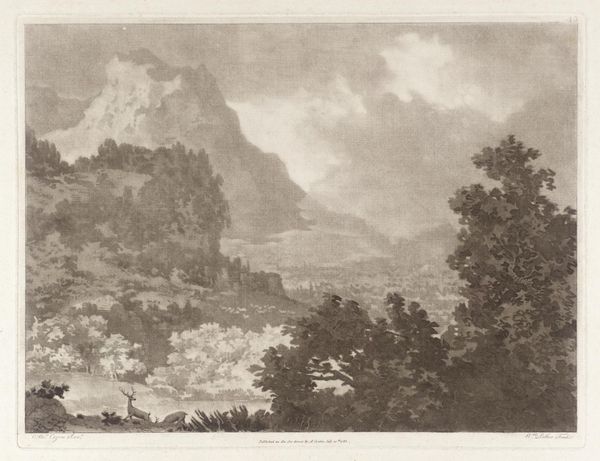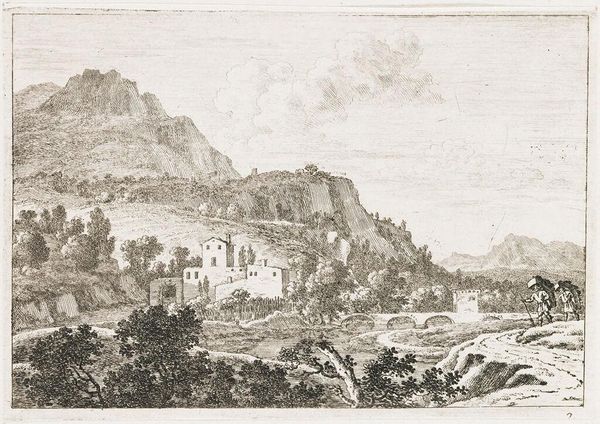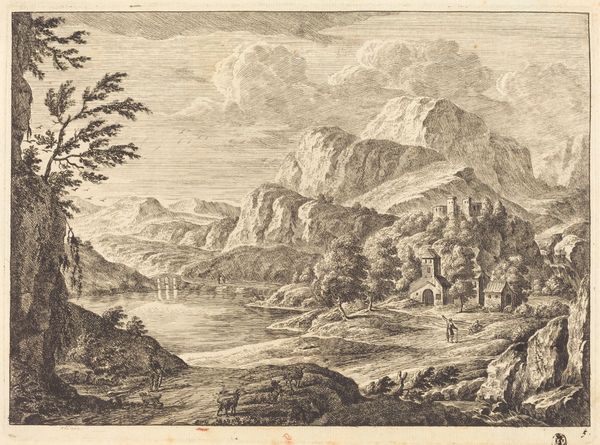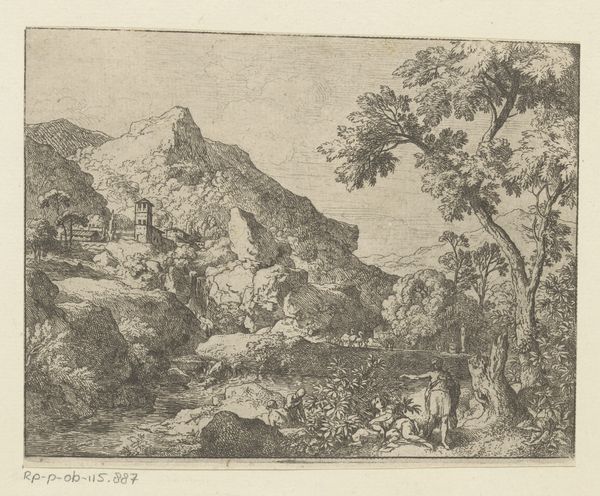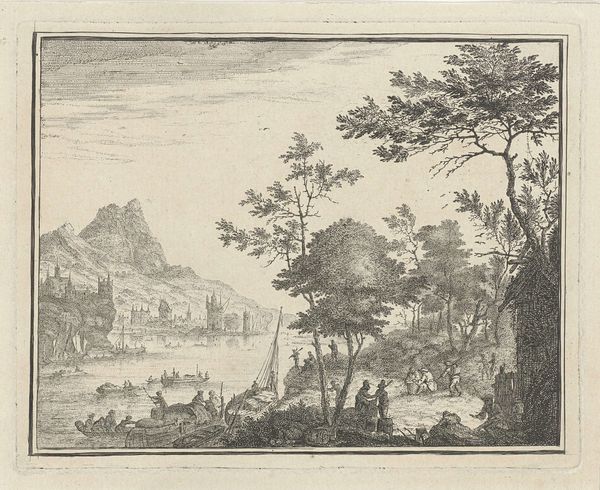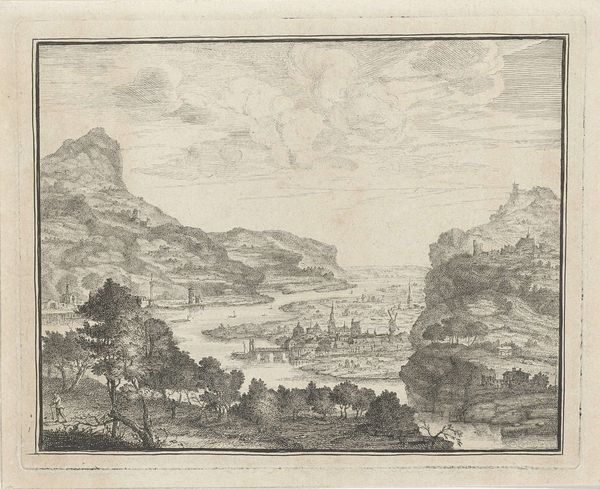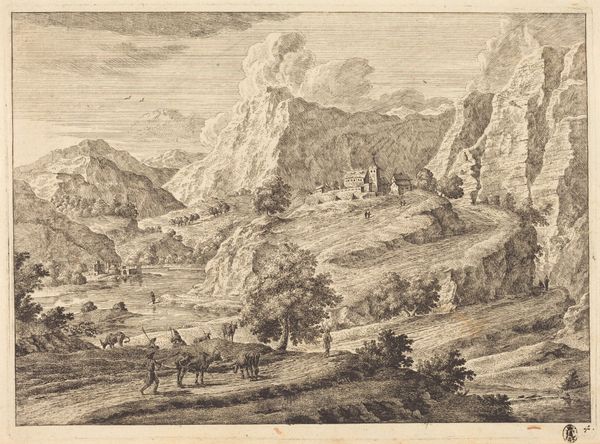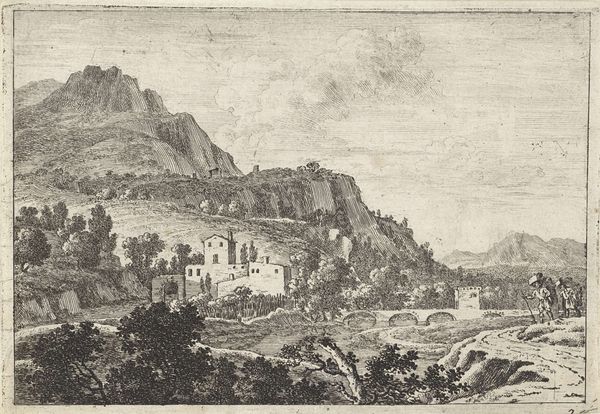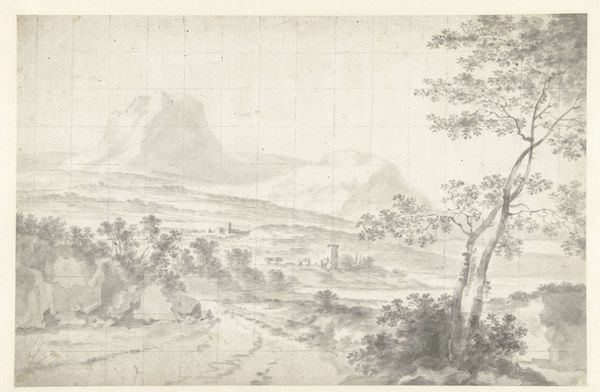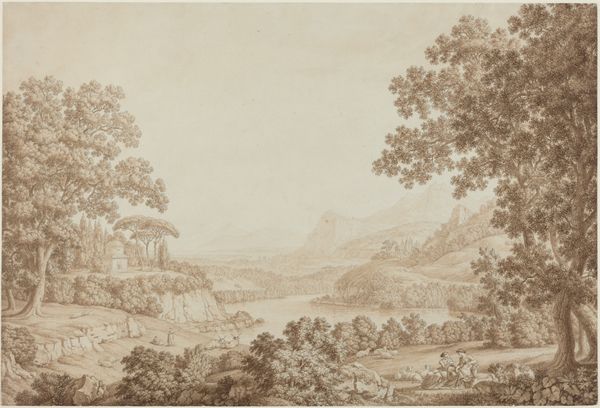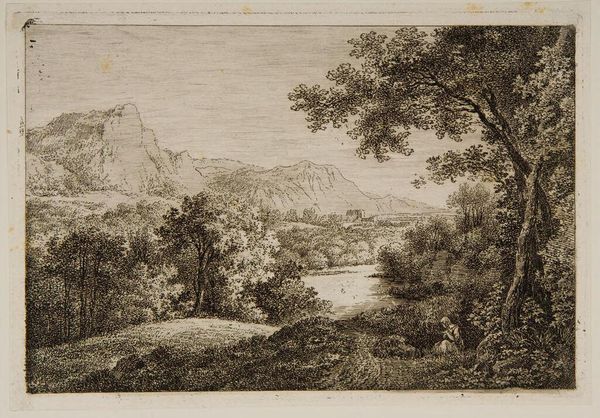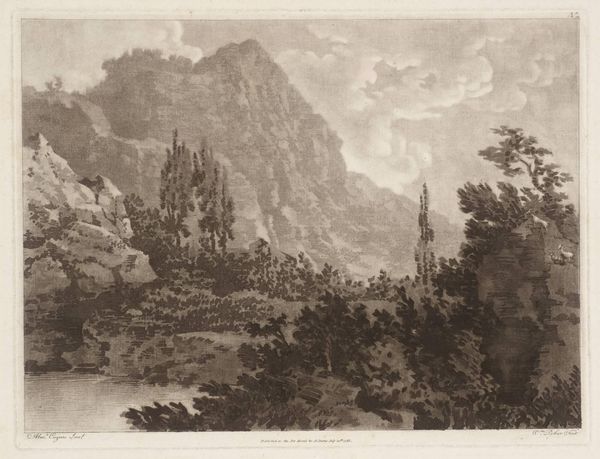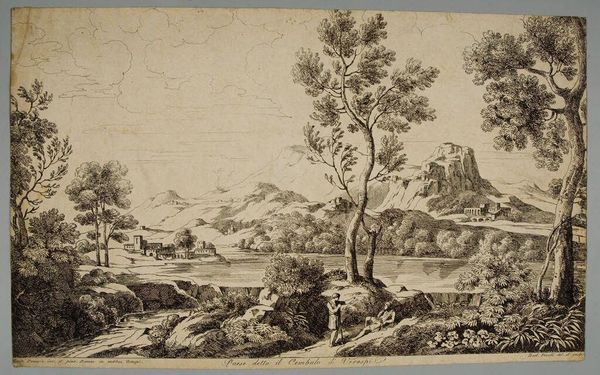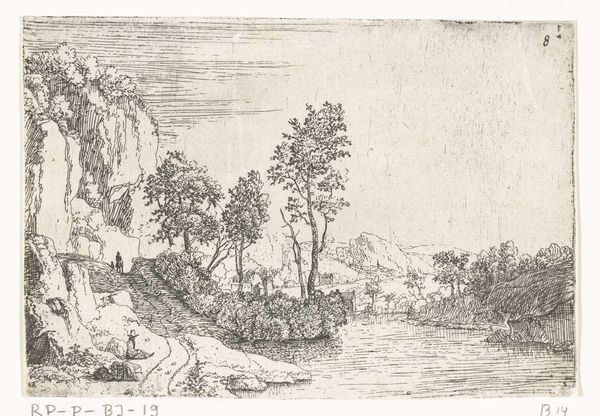![43. [title not known] by Alexander Cozens](/_next/image?url=https%3A%2F%2Fd2w8kbdekdi1gv.cloudfront.net%2FeyJidWNrZXQiOiAiYXJ0ZXJhLWltYWdlcy1idWNrZXQiLCAia2V5IjogImFydHdvcmtzL2EwZDdhZThjLTM3Y2ItNGNkMy05NzFkLTVmZTQ1NWZkYmE2NS9hMGQ3YWU4Yy0zN2NiLTRjZDMtOTcxZC01ZmU0NTVmZGJhNjVfZnVsbC5qcGciLCAiZWRpdHMiOiB7InJlc2l6ZSI6IHsid2lkdGgiOiAxOTIwLCAiaGVpZ2h0IjogMTkyMCwgImZpdCI6ICJpbnNpZGUifX19&w=3840&q=75)
Dimensions: image: 228 x 306 mm
Copyright: CC-BY-NC-ND 4.0 DEED, Photo: Tate
Curator: Here we have an ink wash landscape by Alexander Cozens, dating from the 18th century. Editor: It's incredibly atmospheric. I feel dwarfed by the scale of that mountain, yet strangely comforted by the trees in the foreground. Curator: Cozens was known for his "blot" technique, which involved creating abstract ink blots and then developing them into landscapes. Think of it as a 18th-century Rorschach test. Editor: So, was he inviting viewers to project their own emotional landscapes onto these scenes? I see a subtle critique of Enlightenment ideals, suggesting nature's power over human control. Curator: Perhaps. Landscape at the time was often tied to ideas of property and dominion. Cozens's method, however, seems to relinquish control, leaning into nature's inherent ambiguity. Editor: I think it reflects a growing awareness of the sublime, the awe-inspiring power of nature to evoke feelings that transcend rational thought. A very modern sentiment, really. Curator: Precisely, and it's fascinating to consider how that shaped not only art but also social and political perceptions of the natural world. Editor: It's work like this that reminds us landscape isn't just scenery. It reflects how we understand our place in the world.
